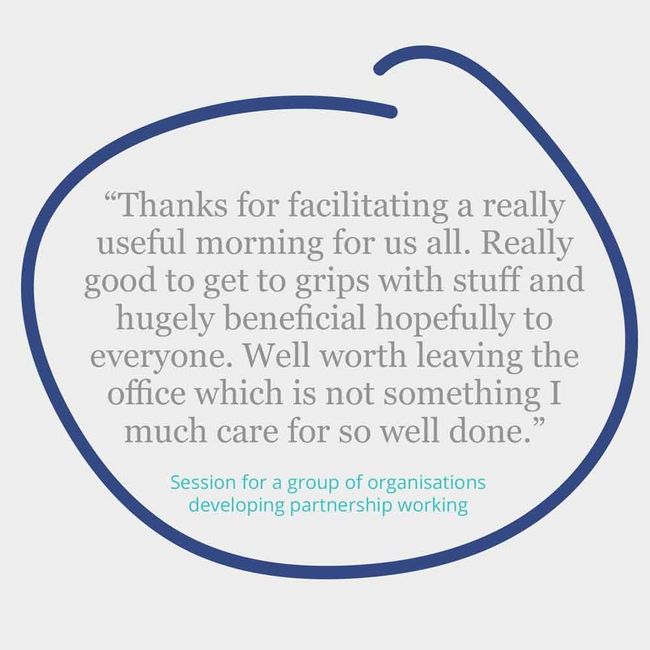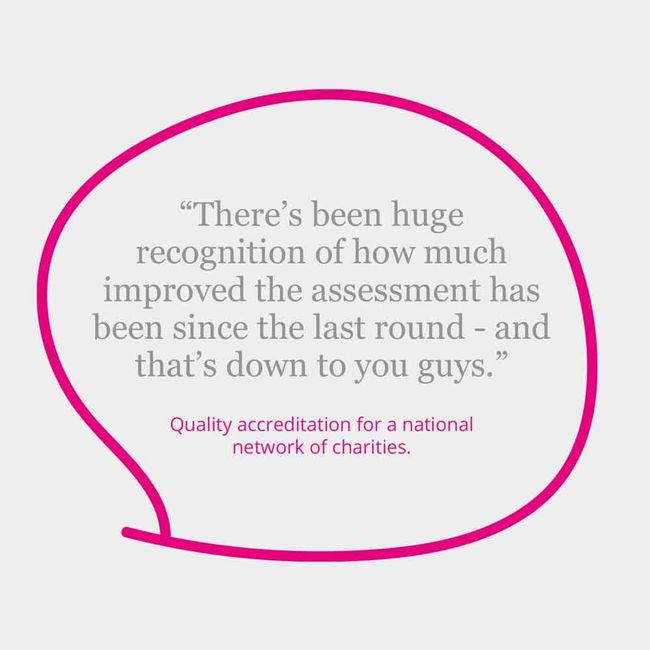by Becky Nixon
•
22 May 2024
People sometimes struggle to understand what a trauma-informed approach is. This is in part because although there are frameworks and tools to help to implement trauma-informed practices, the core of it is really a shift in thinking that once you've "got" (although it's also an ongoing learning process) you can start to apply to any situation. This article is partly an example of how to think about management in a different way that is more sympathetic to people, takes a systems approach rather than putting the problem with one person, and takes into account how trauma, adversity or discrmination may affect a situation and how it's viewed. I’ve been meaning to write something about the framing of “toxic” workers since I read this article , which the date tells me was nearly a year ago now. The article is in People Management by the Chartered Institute for Personnel and Development (CIPD). This is just one example, there are many more, but this is framing that, in my view, is likely to cause more problems than it solves. Everyone can probably think of a colleague who might have been described as "toxic", but I have a strong reaction to the labeling of human beings like this, particularly by a worker in relation to other people who have been selected and welcomed into their organisation. The use of such a strongly negative term can feel dehumanising and dismissive of the complex factors that contribute to an individual's behavior in the workplace. It is also counter to the trauma-informed philosophy of looking at what happened to people that explains their behaviour rather than what's wrong with them. What’s the problem with the "toxic" label? Labelling a worker as "toxic" fails to recognise that people are individuals with strengths and weaknesses and a lifetime of experience that has shaped who they are, including processes in the organisation or previous work roles, and the person's life experiences such as childhood trauma, adversity or exclusion. It minimises the role of workplace processes in influencing worker attitudes and performance and the impact of the type of work that people often do in the voluntary and public sectors with dangers of burnout, vicarious trauma, moral injury and compassion fatigue. This framing can lead to a blame-oriented mindset that further alienates the worker and hinders progress, and may have an impact on the culture in the wider team. Assessing workplace processes and worker needs Every person in the organisation is part of a system, and relational issues are rarely "caused" by just one person. Worker unhappiness or difficult behaviour may stem in part from inadequate workplace processes or poorly supported managers. The same publication reports that although the majority of people say they have a good manager, 53% of those wanting to change roles were doing so because of their manager. Instead of labelling a worker as "toxic," it’s important to ensure that people have the necessary resources and support to perform successfully. There are evidenced and established frameworks about what contributes to worker stress, burnout and vicarious trauma or what correlates to greater worker performance, satisfaction and retention. These can be used to assess workers’ needs, actively seek their feedback, and engage in structured and open communication. Rather than viewing the worker's behaviour as resistance, it can be seen as valuable data that highlights potential areas for improvement within the organisation. When workers express unhappiness, it presents an opportunity to actively engage with their concerns, which may be shared by other team members who aren’t so confident in speaking up. These are workers that can prevent avoidable mistakes and failure. By structuring meetings in a way that encourages constructive criticism, for example allowing workers to formally play the role of devil's advocate, organisations can gain valuable insights into potential issues and foster a culture of continual learning and improvement. Furthermore, this is a person that your organisation has recruited and inducted, and possibly passed probation, so it’s worth considering whether something has gone wrong at this stage as well as recognising that you have a contract with them that includes supporting them and dealing with any problems. The contribution of psychologically and trauma-informed approaches An individual's behaviour is often conditioned by their experiences of adversity and trauma or other family dynamics This may be especially the case for people in “helping” roles who are more likely to have experienced adversity . It can be helpful to start from a position that people are trying their best and of understanding that people’s behaviour makes sense to them based on the context that they are in although you – and they – may not understand where this comes from. Some examples of how family dynamics influence how people are at work are explored in this article as illustration. While there are limits as to what issues can be addressed within the workplace, adopting psychologically and trauma-informed management can create a more supportive environment. The trauma-informed principles I use based on research are: 1. restoring power, choice, and control; 2. creating safety; 3. building strengths and self-worth; 4. recognising identity and context; 5. facilitating connection; and 6. supporting coping mechanisms. Each of these recognises and supports the wider psychological and emotional needs that all workers come with in a way that is appropriate for the workplace but also recognises boundaries - this also comes with a warning that managers need to recognise their own limitations and avoid initiating discussions they aren’t competent to handle, focusing on maintaining appropriate boundaries and directing workers to seek professional support when needed. Engaging with worker concerns and addressing inclusion A further factor to consider is whether issues of inclusion and belonging are contributing to worker unhappiness. Fifteen percent of workers have experienced bullying , but there can also be lower-level issues of exclusion or "othering" that lead to individuals feeling left out or overlooked that can create what appears to be hostile behaviour. The picture of how diversity in teams contributes to performance is complex and not a straightforward correlation - probably because it needs skillful management and psychological safety to take advantage of the benefits that it brings, it doesn’t happen automatically. When everything else has failed After exhausting other avenues, in some cases being in the organisation is not the best thing for the person, for the organisation or for its beneficiaries and other stakeholders, and a performance improvement plan may ultimately be necessary. The actions of one person can have a big effect on a whole team - one of the factors influencing an individual's performance and engagement is their perception of their colleagues' commitment to quality work – but this can be a complex mix, workers who exhibit behaviour that is deemed "toxic" can be highly skilled and dedicated to their roles with their frustration stemming from feeling unable to perform to their full potential due to workplace structures or limitations. Organisations need to ensure that they have clearly set out values that preferably workers have contributed to developing, and that it is clear that their performance will be assessed against these and not just task-related outcomes. How Ideas to Impact can help Ideas to Impact's training, consultancy and mentoring considers some of these wider issues in relation to how to pinpoint and address problems. Training includes: A half-day introductory workshop to trauma-informed practices in general, appropriate for people working in any role in the organisation. From stress to strength: managing a psychologically and trauma-informed team - focusing on psychological insights and how trauma-informed approaches can apply to the workforce. Building strong foundations: psychologically and trauma-informed systems and culture - focusing on organisational systems and processes for managers, leaders and anyone else in organisations with a role in determining these. Courses includes a set of frameworks and tools that can be used on an ongoing basis as well as considering wider psychological and group dynamics factors. Training can be provided within individual organisations or to groups of organisations (we have found that this is a good way to make links between organisations that can have wider benefits for the work as well as sharing good practice) and delivered as whole day sessions or broken down into workshops. We also know that whilst people find one off training useful, it can be difficult to put it into practice in the workplace, so individual consultancy and mentoring is also available. Have a look at our services page or get in touch directly at becky@ideastoimpact.co.uk








